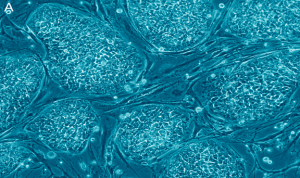Image source: timesofindia.indiatimes.com
Biotechnology is basically a field that merges the concepts of biology with that of technology. It’s a fairly new topic that has become quite popular lately following its contribution to agriculture. For this reason, it might be what agricultural experts have been hoping for and it can actually revolutionize this sector. Take for instance; through biotechnology, there are new ways to improve crop growth that has emerged. Furthermore, scientists argue that this is a practice that has been going on for centuries now. Notable examples are selective breeding and cross-pollination. With that said, there are still some setbacks associated with this technology.
Pros:
1. Has the ability to improve health and ultimately reduce hunger. We all know that the main cause of poor health in many countries is hunger and the lack of proper nutrition. For starters, biotechnology can significantly increase crop yields and hence people have enough to eat. It can also help improve the nutritional content of food supplies.
2. There is flexibility within the food chain. There are some regions such as deserts that are not conducive to crop growth. Biotechnology can help make such croplands arable.
3. There are medical advancement opportunities. Biotechnology leaves room for scientists to explore certain areas in the medical field that can be useful in the lives of humans. For instance, it allows studies on genome so that people can better understand the causes of some genetic diseases and how they can be treated.
4. It is useful in minimizing and eliminating waste. Waste management is a global problem that many countries are still struggling with. Through biotechnology, there are waste products that are easily biodegradable.
5. Reduces infectious disease rates. Some diseases have symptoms that are difficult to treat. However, biotechnology has been of huge help in creating vaccines for such diseases. Also, experts are able to know how infectious diseases are often transmitted and hence can prevent their occurrences.
6. It allows us to preserve our resources. This technology has provided us with an opportunity to prolong the lifespan of various foods through salting, freezing, drying, and pasteurization.
7. The nutritional value of food is enhanced. Biotechnology can help enhance the vitamins and minerals that are in our foods. Therefore, people will be able to get the required nutrition from just a few food items.
8. Minimizes the need for pesticides. Pesticides may be helpful in getting rid of pests that tend to destroy crops but they are mainly not environmental friendly. With biotechnology, there are various plants designed to be naturally resistant to pests and crop diseases.
9. Decreased costs of farming. This is because there is no need to purchase expensive pesticides if you already have pest-resistant crops.
10. Biotechnology has helped create more fuel-efficient ways to power transportation. This is through the introduction of bio fuel which has greatly helped combat greenhouse gas emissions that are known to destroy the ozone layer.
Cons:
1. Unexpected cross-pollination sometimes occurs. Natural cross-pollination is a normal occurrence between plants. On the other hand, cross-pollination between engineered plants and the normal plants often results in unsustainable breeds.
2. It’s not really great for the land. There is a possibility the plants created through biotechnology consume almost all the soil’s resources and most notably its nutrients. This can render the croplands useless.
3. It’s not cost-saving. Biotechnology is quite expensive and offers no savings. The costs are the same as growing the normal plants and the consumer will still have to pay the same amount for such food items.
4. It comes with an all-or-nothing approach. This means that anything can happen considering the fact that there is a lack of genetic diversity. Should anything go wrong, the entire opportunity is ruined.
5. There are many unknowns. As much as a lot of research has been done on biotechnology and its database seems to have expanded, there is still plenty that we don’t know. Mostly, these are long-terms effects of such research. Something may be done today and it affects the future generations.
6. It can be misused. This is the major drawback of biotechnology. All the benefits of this technology can be turned into mass destruction. For instance, some diseases can be created and used as weapons.
7. Human life has been turned into a commodity. There are cases of scientists manipulating human DNA for their own financial benefits and this is viewed as degrading human life. As a matter of fact, DNA that is manipulated in the lab can be patented.
8. The spread of blight in crops. Particular research found that big farms and feed heaps might actually cause a spread in blight. This is a disease that can cause withering or death of tubers and leaves in plants.
9. Biotechnology affected food items may not be healthy for everyone. This is because some plants might contain allergens that can affect people who are food sensitive.
10. Results in unresponsiveness or resistance to some medications. This is mainly due to over-prescription and misuse.



